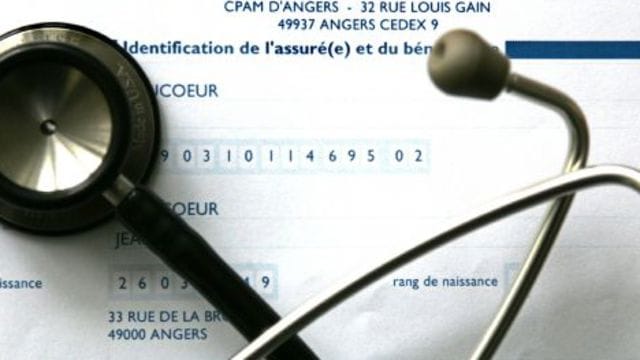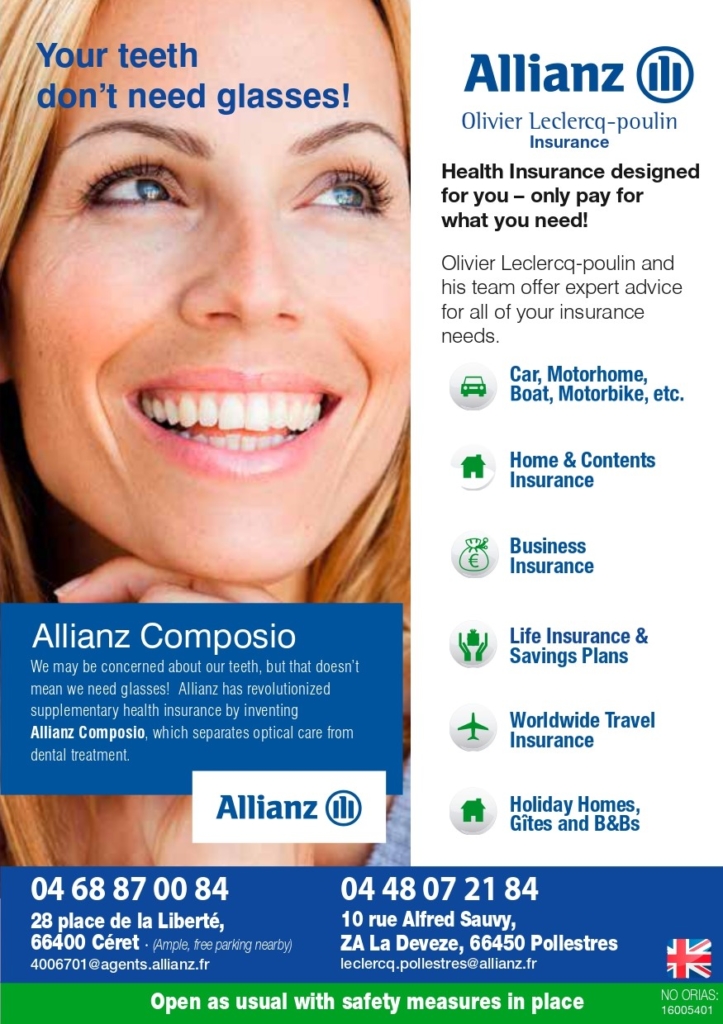Why do we need a complémentaire santé?
A complémentaire santé or mutuelle, as it is also called, is a policy which reimburses medical costs not covered by the Social Security.
Depending on the policy chosen, it will cover some or all of the remaining percentage NOT reimbursed by the state. This can be substantial if you need hospital or emergency treatment as hospitalization, a private room, ambulance costs, all of which can be expensive and refunded only minimally, or not at all by the Sécurité Sociale (la Sécu).

Since 2016, anyone who lives in France permanently is entitled to become part of the French health system and benefit from the same cover as a French national. If you are not already in the French healthcare system, find out how to apply here.
The PMU (protection universelle maladie) sets out the costs of treatment according to a fixed tariff system determined by the State, as shown in this table. However, hospitals and doctors don’t have to charge the tariff. In fact in many cases professionals may charge much more so it pays to take care when you choose your doctor!

In a lot of cases, treatment is not covered 100% by the State. The table also shows what percentage of the tariff the PMU will pay. You or your mutuelle are liable for the balance.
Example 1: (from 2020) If you are having a hip replacement, the new hip is covered 100% unless you choose to use one that is more expensive than the standard. 70% of the surgeon’s and anaesthetist’s fees will be covered up to the tariff fixed by the State, as long as you have been referred by your médecin traitant (GP).
There is a fixed tariff of €20 per day for the hospital stay which is not covered. Other fees vary: for example 60% for rehabilitation after the operation. Anything extra you order like a private room, or television is not covered. A typical hip replacement will cost €10,000 – €20,000 depending on the hospital and surgeon, so you are looking at several thousand euros of costs which you will need to pay personally if you don’t have a mutuelle.
Example 2: (from 2020) The state fixed consultation fee to see your médecin traitant (the GP that you have signed up with) or another généraliste (general practitioner) is €25 of which the PMU will pay €16.50. You pay the balance. In practice 94% of GPs only charge the tariff so you are unlikely ever to pay more than €8.50 towards a consultation.

The top-up insurance is to cover the short fall. However, be aware that rates are based on the government table, so if you have 100% cover, that’s 100% of the tariff. If you want to be covered for the full cost in some cases, you may need a mutuelle with around 150% cover. Mutuelle insurance cover goes up to 200% of the tariff, if you want to be covered 100% of the full cost in all cases. It’s worth asking around to see what other people in your area have, as doctors in the big cities tend to charge more than those in the provinces.
It’s worth noting that legislation introduced in 2020 has lowered the cost of optical and dental care, which used to be exhorbitant. It is also worth noting that as long as you stick with a médecin conventionné (who has signed a contract with the State), any ALD (affection longue durée or long term illness as defined by French law) is covered 100%, as are any life-threatening operations such as having vertebrae pinned, and in such a case all you will be liable for is the daily contribution to hospital costs.
Choosing your ‘mutuelle’
ENGLISH SPEAKING MUTUELLE PROVIDERS
It is worth exploring different insurers and policies in order to find the right one for you and your family.
Some insurers now offer ‘made to measure’ flexible packages where you can choose to add or subtract what is more, or less relevant to you personally. For example, if you know that you have regular problems with your teeth, but your eyes are mostly fine, you might choose a higher level of reimbursement for your dental care than your optical needs or you may wish to put the emphasis on a policy which reimburses routine care such as GP or osteopathy and ‘dépassements d’honoraires’ (charges exceeding the ‘Tarif de Convention’, standard fee set by the state) but less on actual hospitalisation…..
Basically, you don’t need to pay for what you are unlikely to use, but may add on or reduce cover for the policy each year, if you feel it necessary.
Whatever you choose, the monthly premium is surprisingly low compared to British health insurance policies, although be aware that this does not entitle you to queue jump, or private health care – it simply pays the bills for what is already available from the French health service.
If you are on a very limited budget for healthcare, you can take out a top up policy for hospitalisation only, the greatest expense.
What are the conditions for taking out top-up insurance?
Age is obviously a factor, but different insurers have different age criteria. On average, you should have no problem taking out a policy up to 85, after that it is negotiable.
Importantly, unlike English health insurance policies, there is no medical questionnaire and you can take out a ‘complémentaire santé’ in all circumstances, even if you have a pre-existing condition, without it affecting your premium.
CSS
If your income is under a certain levels (€13547 for a couple in 2020) then you can apply for the CSS (complémentaire santé solidaire), where you are covered 100% without having to pay up front. It is still worth applying if it is slightly higher (€18289 for a couple in 2020) as you will have a reduced cost for a mutuelle of less than 1€ per day per person to pay.
ENGLISH SPEAKING MUTUELLE PROVIDERS
Check out….
- if there is an initial period during which you will not be reimbursed (some insurers do this in order to stop clients taking out insurance only when they become ill)
- if you can benefit from the ‘tiers payant’ system (payments made directly by your insurance company to the healthcare provider), meaning you do not have to pay upfront out of your own pocket.
Any basic policy should offer partial or total refund of all hospitalisation costs, primary care expenses, i.e. medical fees, tests, and drugs at the same rates as the French state healthcare system. Beware policies that may be introduced at short notice in response to new legislation, as they may not be “tried and tested”.
Do not wait until you are ill to take out top-up health insurance.
Useful vocabulary
Frais médicaux – médical expenses
rembourser – to reimburse
A votre charge – payable by you
le pourcentage de remboursement – percentage of reimbursement
Je voudrais me renseigner sur les complémentaires santé
(Chuh voodray muh ron-sen-yay sure lay complay-mentair sontay)
I would like to find out about complementary health insurance
Pouvez vous me passer à (m’envoyer) quelqu’un qui peut m’expliquer les garanties santé ?
(Poovay voo muh passay ah (monvoy-ay) kelkurn key puh mexpleekay lay garuntee sontay?)
Could you put me through to (send round) someone who can explain the complementary health insurance policies
Je n’ai pas encore reçu ma nouvelle carte vitale
(chunay pa oncor rusew ma noovell cat veetall)
I haven’t received my new carte vitale yet
Que dois-je faire pour obtenir ma carte vitale?
(kuh dwaj fair poor obtuneer ma cat veetal?)
What do I need to do to get my carte vital?
Je voudrais mettre à jour ma carte Vitale ?
(chuh voodray mett ah sure ma cat veetal)
I would like to update my carte vitale
J’ai perdu ma carte Vitale
(shay peardoo ma cat veetal)
I have lost my carte vitale




Excellent. I now understand how it works
Thank you